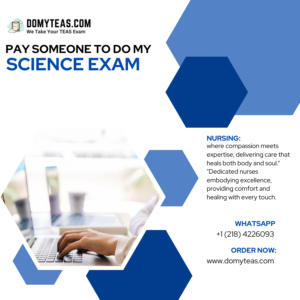Introduction
Science exams can be particularly arduous for students, requiring them to remember complex formulas, scientific terms and lab work. Thankfully, there are numerous effective strategies available for studying efficiently for science exams in order to boost scores: rereading notes and summarizing paragraphs; using practice tests as an introduction; creating nonsense sentences from tough words so as to help remembering them better; etc.
Varsity Learning Tools’ free diagnostic test can also help you assess which areas of a subject you understand well and provide you with a report outlining how well each section performed, so that you can target any areas requiring further work.
An average science test features questions in multiple formats, including multiple choice, true/false, fill in the blank and essay questions. It is crucial to familiarize yourself with all these question types so you can prepare appropriately.
Methods
Science encompasses an expansive field, from subatomic particles to how we think and feel. With so many concepts and formulas involved, it’s no wonder students feel intimidated when taking an exam in this subject area.
The scientific method is of paramount importance when it comes to solving problems or answering questions with science. The steps of the scientific method involve identifying a problem, collecting evidence to support that hypothesis, conducting an experiment to test that hypothesis and then reporting the results in an easily reproducible fashion.
Preparing for a science exam involves reading all assigned readings and making notes that reflect your understanding in your own words, making diagrams, learning the vocabulary of your class, flash cards or shortening a list of difficult terms to just their first letters to help memorize them, taking full-length practice tests with feedback on each area, then checking your results to assess how well you performed on all areas.
Results
This exam covers topics typically presented in introductory biology and physical science courses at the freshman or sophomore levels. It does not focus on testing students specializing in science; rather it serves to gauge what knowledge and understanding can be expected of adults with liberal arts backgrounds. Some institutions provide course credit upon satisfactory performance on this examination.
Some science questions require you to make inferences or apply your knowledge in new ways, known as “green light” questions; you should devote most of your time answering these. Other questions will ask you to read an extensive text for answers; these are known as reading comprehension questions.
Make use of visual aids whenever possible to assist your understanding. Diagrams, flowcharts, concept maps, flashcards and other visuals can all help improve retention of information as well as aid you during exams. Furthermore, try answering similar questions in class before the actual test day so that reestablishing that rhythm won’t be such an inconvenience.
Conclusions
This exam covers topics typically taught in college freshman or sophomore level introductory biology and physical science classes that survey both biological and physical sciences, with emphasis on biological issues. Such courses often fulfill general education requirements; typically not required of science majors. This exam does not test students’ memory for facts; rather it evaluates their comprehension of scientific concepts and issues.
Use Varsity Learning Tools’ free diagnostic tests in Science to identify which academic concepts you understand and those which require additional focus.




